Key takeaways:
- A strong campaign team enhances performance through shared values, commitment, and diverse perspectives.
- Building trust and chemistry among team members is essential for cohesiveness and effective communication.
- Recruitment strategies should leverage personal networks and social media to find individuals who resonate with the campaign’s mission.
- Adaptability and clear communication are crucial for navigating challenges and ensuring a successful team dynamic.
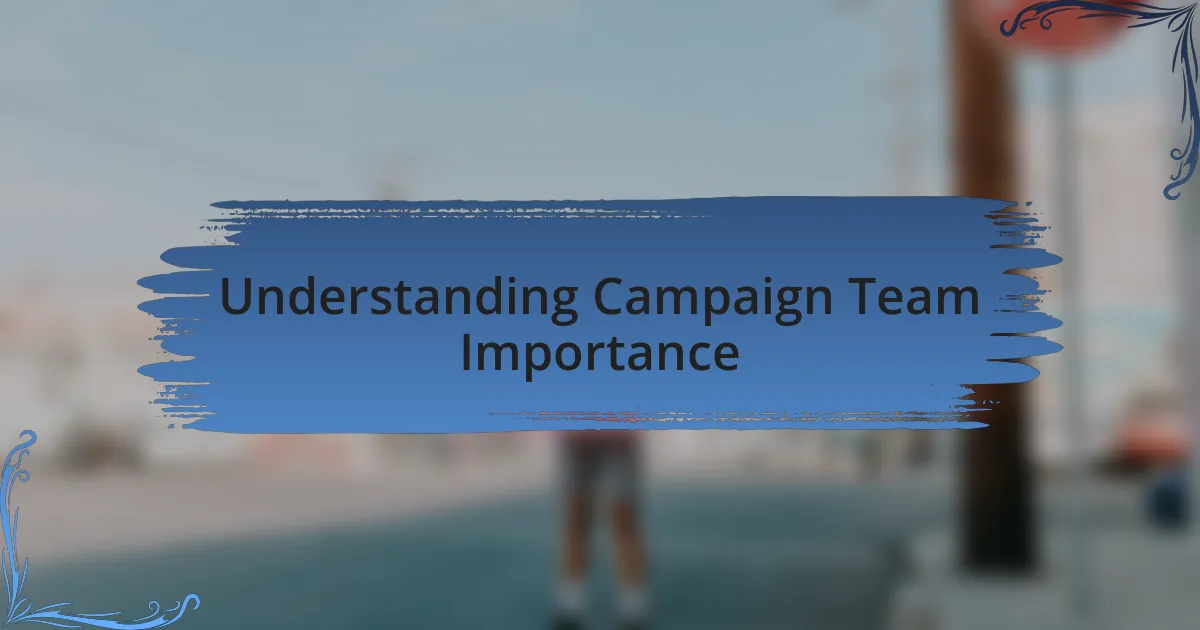
Understanding Campaign Team Importance
A strong campaign team is the backbone of any successful political endeavor. I’ve always believed that surrounding myself with passionate and knowledgeable individuals can make all the difference. Think about it: would you run a marathon alone when a supportive team could bolster your performance and spirit?
I recall the early days of my campaign, when I had a small group of volunteers who shared not just their skills but their enthusiasm. That camaraderie transformed daunting tasks into exciting challenges. Can you imagine the energy that unfolds when everyone is aligned toward a common purpose?
Moreover, the importance of diverse perspectives within a campaign team cannot be overstated. Each person brings their own unique experiences and insights. I learned early on that listening to these voices enriched our strategy and resonated with voters. It’s often those unexpected ideas that spark the most significant innovations.
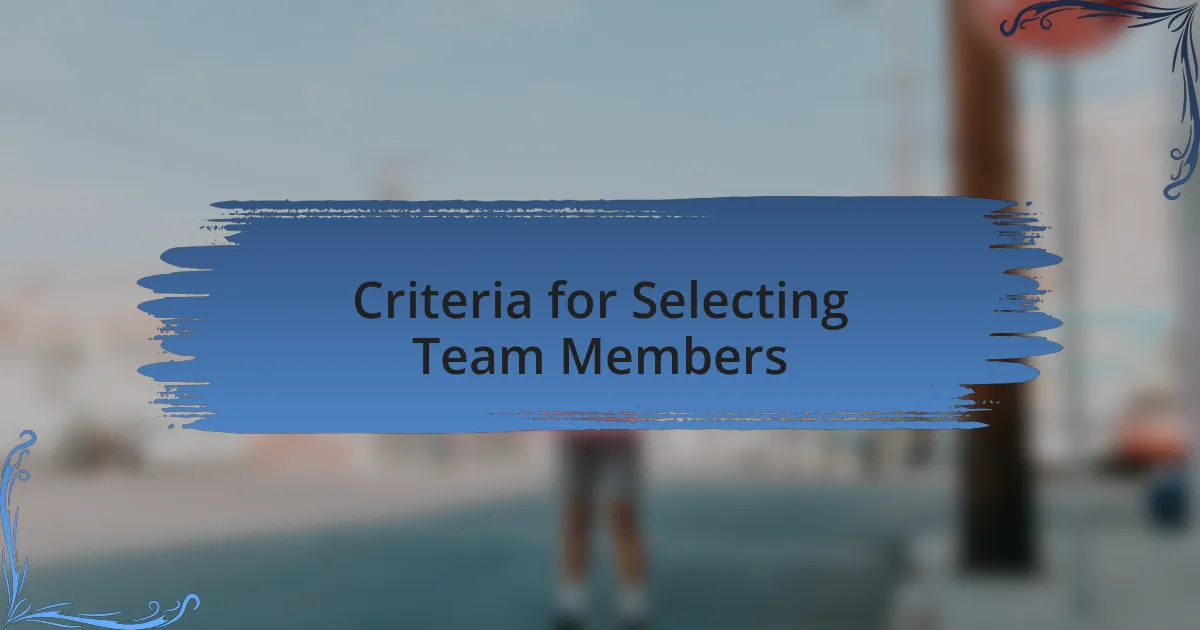
Criteria for Selecting Team Members
When selecting team members, I prioritize shared values and commitment to our mission. It’s essential to have individuals who are not just skilled, but also deeply invested in the cause. I once brought on a strategist whose passion matched my own; that synergy fueled our late-night brainstorming sessions and sparked ideas we hadn’t considered.
Experience is another critical factor. I’ve found that team members with a deep understanding of local laws and community issues can connect with voters more effectively. During my campaign, a team member with extensive regulatory knowledge helped us navigate complex legal questions, ultimately saving us from potential missteps. Their expertise wasn’t just beneficial; it was a game-changer.
Lastly, I look for adaptability. Campaigns are dynamic, and being able to pivot in response to changing circumstances is vital. During a particularly intense moment in my campaign, we encountered an unexpected challenge. It was the flexibility of my team that allowed us to adjust our strategy on the fly, showcasing the strength of having versatile individuals by your side. How could I not value the ability to adapt when I saw firsthand the positive outcomes it produced?
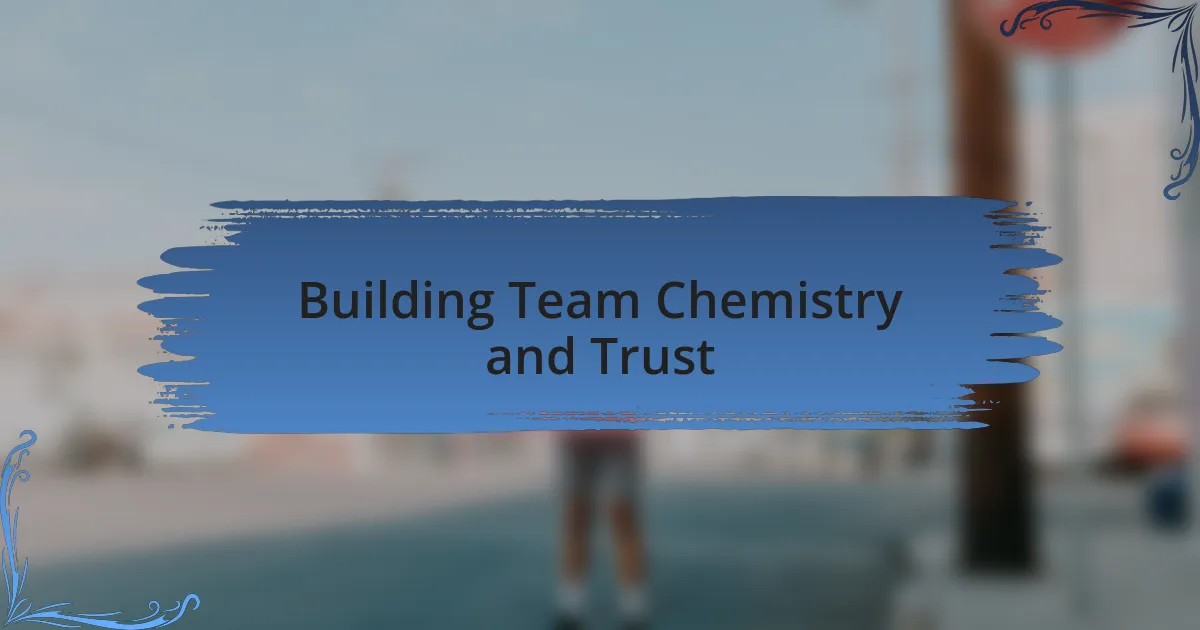
Building Team Chemistry and Trust
Building team chemistry and trust is fundamental for any successful campaign. I remember a team-building retreat we organized early on. We spent hours not just talking about strategy but sharing personal stories and vulnerabilities. This openness allowed us to connect on a deeper level, fostering an environment where everyone felt safe to express their thoughts. Isn’t it amazing how trust can transform a group of individuals into a cohesive unit?
Trust doesn’t just happen overnight; it’s built through consistent communication and support. There were moments when tensions ran high, and disagreements arose over campaign strategies. I made it a point to facilitate open discussions where each member could voice their concerns. By actively listening and valuing every opinion, we strengthened our bonds. Have you ever noticed how listening can change the dynamics of a conversation? It certainly did for us.
Ultimately, shared experiences play a pivotal role in developing that chemistry. I recall a day when we volunteered together at a local community event. Not only did it lighten the mood, but it also gave us a chance to see each other in action, beyond our roles in the campaign. It’s those moments, I believe, that solidify relationships and create a team that stands united in both purpose and spirit. When you’re facing challenges, knowing you have a reliable team behind you makes all the difference, wouldn’t you agree?
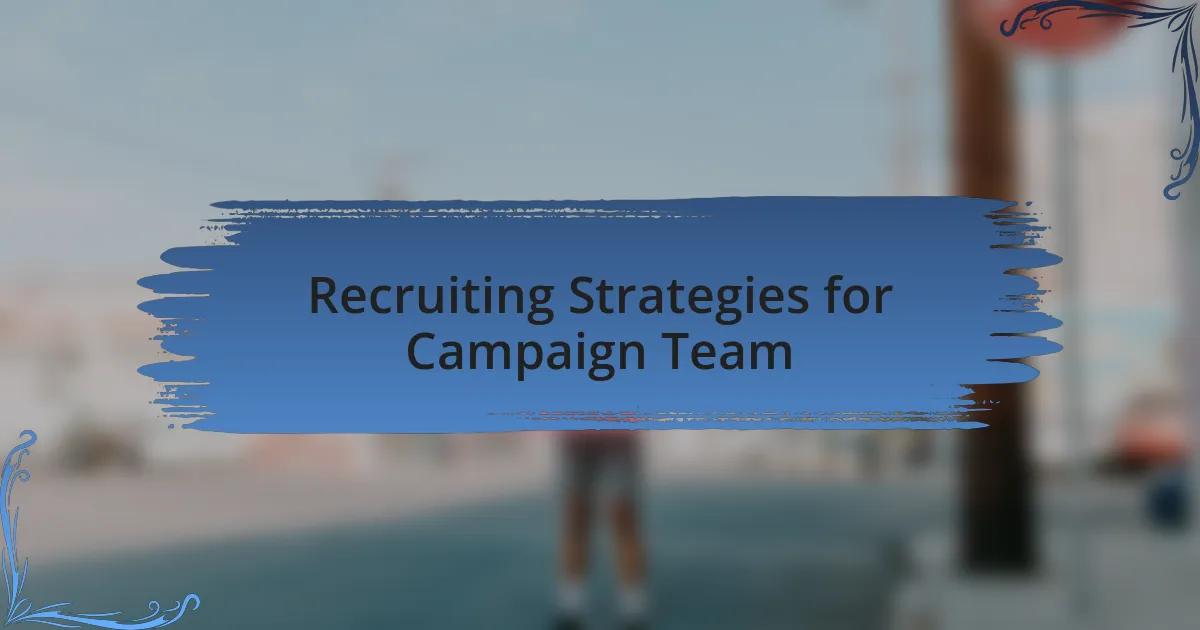
Recruiting Strategies for Campaign Team
Recruitment for my campaign team was all about tapping into my network and asking for recommendations. I often reached out to colleagues and friends in political circles, seeking individuals who not only had expertise but also shared our campaign’s vision. It’s fascinating how a simple conversation can lead to discovering a potential candidate who aligns perfectly with your values. Have you ever found a hidden gem through a casual chat?
I also made a point to utilize social media platforms for outreach. By posting about our needs and what we were looking for, I engaged potential team members in a way that felt more personal. I vividly recall one applicant who reached out after seeing my post. She not only had extensive experience but shared an inspiring story about her commitment to community service that resonated with our mission. It reminded me that sometimes the best candidates come from unexpected places. Isn’t it energizing to think about the diverse experiences people bring to the table?
Moreover, hosting informational sessions was a great way to connect with candidates directly. During one session, I could see the spark in the eyes of potential team members as they learned more about our campaign. Their enthusiasm was contagious! It reminded me that people are often looking for causes they can believe in. Don’t you find that passion is just as important as skills when building a strong campaign team?
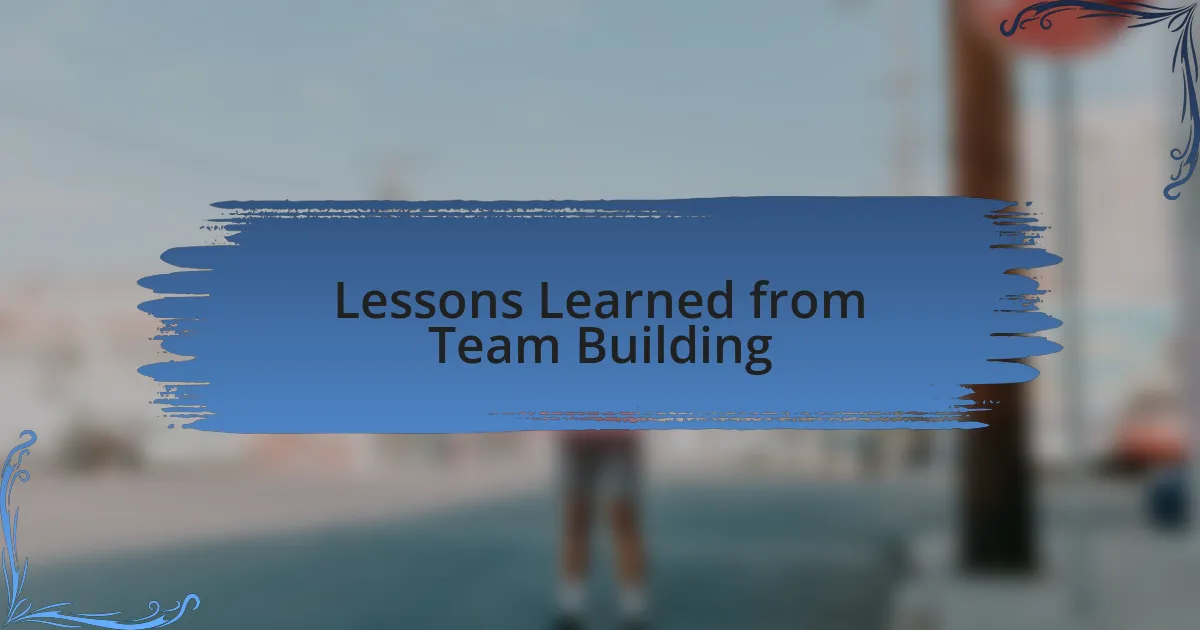
Lessons Learned from Team Building
Building a campaign team taught me that synergy is essential for success. During our early meetings, I learned that it wasn’t just about skills but how well our personalities aligned. I remember a session when two team members clashed over strategy. I realized then that addressing interpersonal dynamics is as crucial as any tactical approach. Have you ever been in a team where the energy just didn’t mesh?
Another significant lesson was the importance of clear communication. Early on, I made the mistake of assuming everyone was on the same page, leading to confusion about roles and expectations. One afternoon, after a particularly chaotic meeting, I decided to implement weekly check-ins. This small adjustment transformed our workflow and fostered a culture of openness. Can you relate to the relief of knowing everyone is informed and engaged?
Lastly, I discovered the value of adaptability in team building. Our initial plan for the campaign evolved rapidly, requiring us to pivot our strategies. In one instance, I had to let go of a long-time friend who was not fitting in with our evolving goals. It was a tough decision, but it taught me that decisions for the greater good often come with emotional weight. Have you ever had to make a hard choice for your team’s success?